STM Save The Mothers
Reducing maternal mortality in Sub-Saharan Africa through safe birth knowledge and training
One woman every 2 minutes dies of complication of pregnancy and 99% of those are in developing countries. Tanzania is one of the ten countries with the highest maternal death rates.
Save the Mothers is a program that equips birthing attendants in the Maasai community with knowledge on safe birth and resolving the most common obstetric complications. Because their villages are so remote, the Maasai often have no access to maternal care and deliver their babies in mud huts with no medical professional present, only a traditional birthing attendant (TBA). When complications arise during delivery, mothers die preventable deaths simply because no one present knows how to save them.
Our goal is simple: When you cannot talk the mom into coming into town to the hospital then equip the TBAs with the knowledge needed to Save the Mothers. It is a battlefield approach to delivery!
With the supervis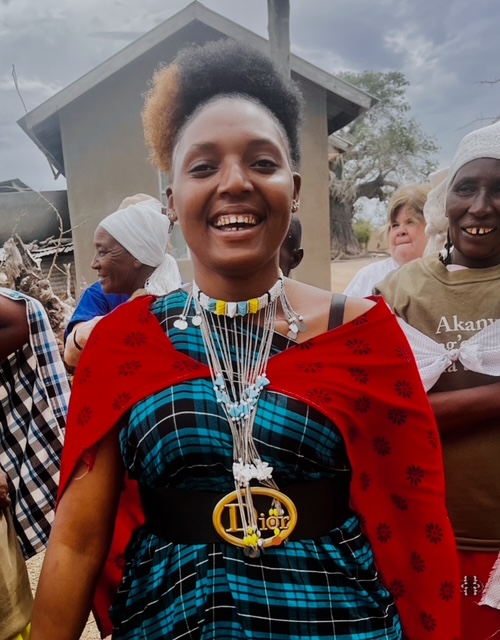 ion of Neema’s medical doctors and our midwife on staff, Ester teaches the week long safe birthing classes. Ester is Maasai and the classes are taught in the Maasai language. She has done student intern work in midwifery at a local hospital and is currently working on her nursing degree. As a Maasai she is loved and respected by the Maasai traditional birthers who come to Neema for the classes. Classes are taught using video slides since most of the TBAs do not read or write.
ion of Neema’s medical doctors and our midwife on staff, Ester teaches the week long safe birthing classes. Ester is Maasai and the classes are taught in the Maasai language. She has done student intern work in midwifery at a local hospital and is currently working on her nursing degree. As a Maasai she is loved and respected by the Maasai traditional birthers who come to Neema for the classes. Classes are taught using video slides since most of the TBAs do not read or write.
A Program Is Born
It all began at the beginning of the COVID shutdowns in 2020. Though COVID took so much, it also gave us all some things: more time to sit, reflect, and maybe even dream.
At the time the shutdowns began, Kassie Stanfield was a certified public accountant (CPA) working in Washington, DC. A panicked call from her sister over her daycare shutting down resulted in a cross-country drive and seven weeks in lockdown and work-from-home with her sister, brother-in-law, and ten month old nephew. After speaking with her sister one evening about a complication she faced during labor, Kassie was struck with the heavy reality that had her sister been living in Maasailand, this simple complication would have killed her.
The next morning, while doing her Bible study Kassie suddenly got the idea that became the basis of Save the Mothers. “The idea just hit me all of a sudden: what if we could take a combat medicine approach to obstetrics? It may not always be pretty or perfect but with simple techniques you could save a lot of moms that die of common complications. I was just sipping my morning coffee. And I had never before had an idea I felt confident was from the Lord or ever had an experience when I felt I had heard God so clearly, but I did that day. And I believe the fact that 18 months later the program is working and saving lives despite the fact that it was thought up by a CPA is proof that the hand of God is all over it,” Kassie says.
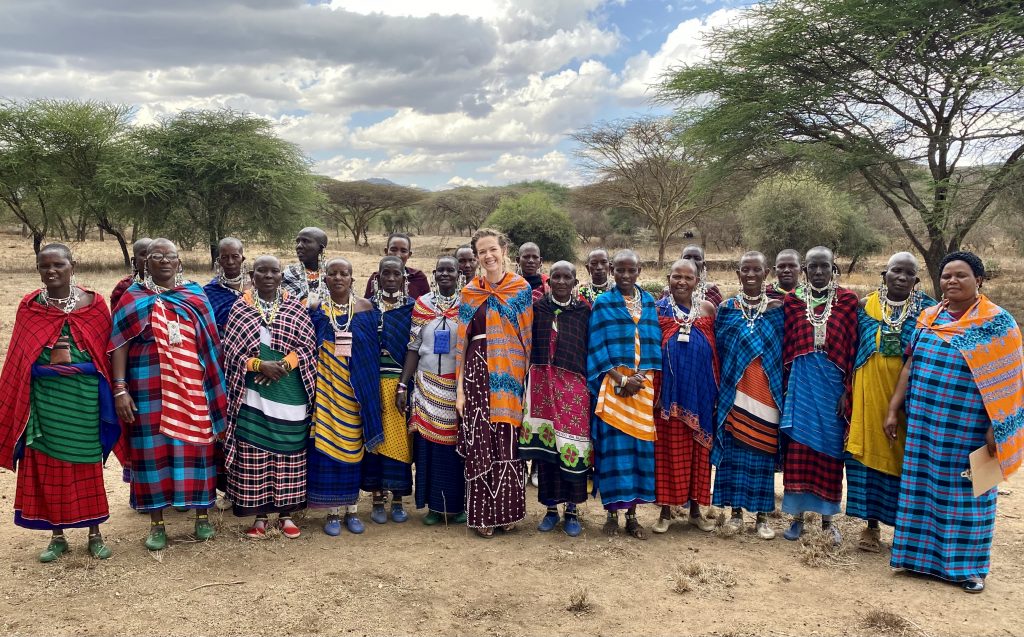
The Why and How
The best estimates we have been given is that one in nine Maasai women will die in childbirth or as the result of a maternal complication. That can either shock us and make us believe the problem is too large or motivate us to work faster and harder. We choose the latter.
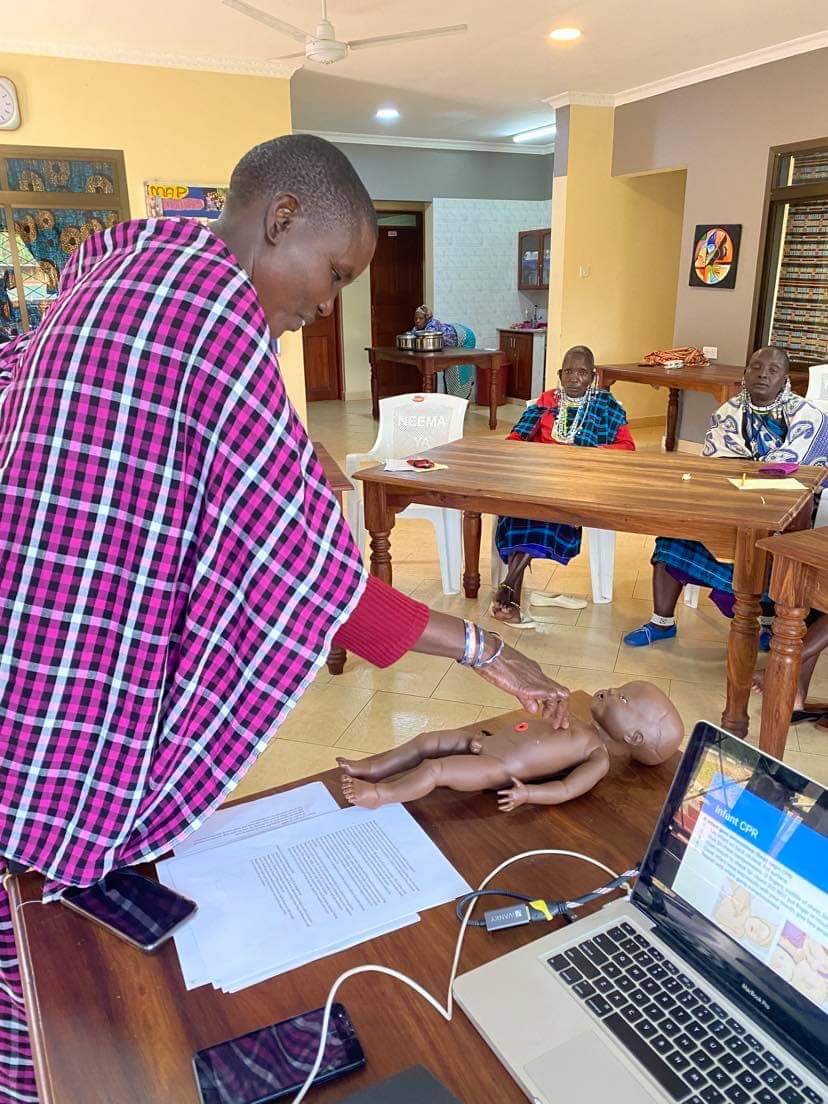
So how does Save the Mothers work? The program begins with bringing in traditional birthing attendants (TBAs) for week-long intensive safe birth training programs. During the week these Maasai women will learn risk factors and indicators of complications as well as what to do in emergency situations when complications arise.
After graduation, these TBAs return home and become advocates, facilitating discussions on women’s health in their villages and sharing the life-saving information that they learned with other traditional birthing attendants in their area. We continue by tracking graduates’ progress, deliveries, testimonies, and challenges. The program also includes a series of in-person follow-ups to conduct refresher trainings and facilitate community outreach by providing mobile maternal/fetal health clinics in remote areas of Maasailand.
Neema also regularly does food drops to villages when we hear that our Bibis are starving. When there is little rain and the crops fail, grandmothers and babies suffer first.
There have now been over 600 TBA s (traditional birthing assistants) trained at
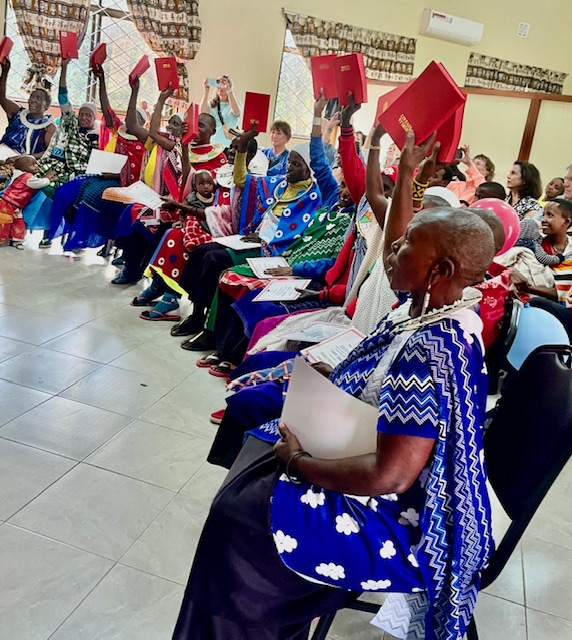
Neema Village. With morning devotionals and bible study some of these women accept Jesus and go home to change their villages. They all go home with a Bible even though many of them cannot read or write, their grandchildren can.
Each month the twelve TBS graduate at Neema Village. It is quite a ceremony as they march in with dancing, balloons and trills. At graduation they receive many gifts to help them in their work including a solar light for night time deliveries and a red Maasai Bible. We tell them you may not can read but your grandchildren can.
The happy grandmothers below received a food drop that would last them two months.
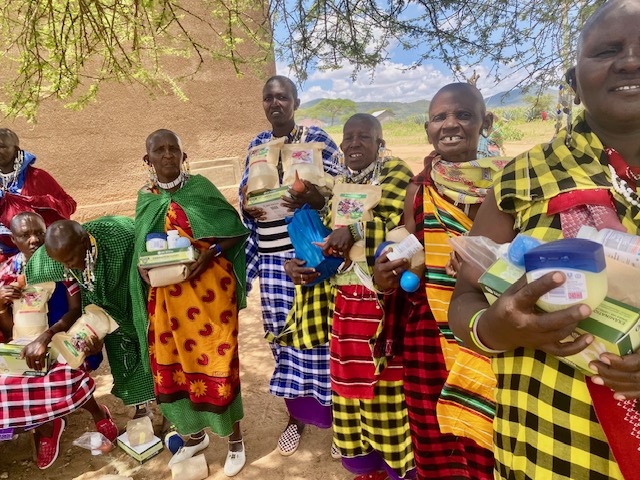
Maasai baby Salepu’s story:
One evening the Save the Mothers Director, received a call from, Ngoije, one of our traditional birthing attendants that graduated the program in class two. A village far from where we have been training had a mother who died right after delivery. The family had heard that Ngoige, our TBA, had been in the Save the Mothers program at Neema Village and knew she was a community leader, and called her begging for help and saying that the baby would die without someone to rescue him.
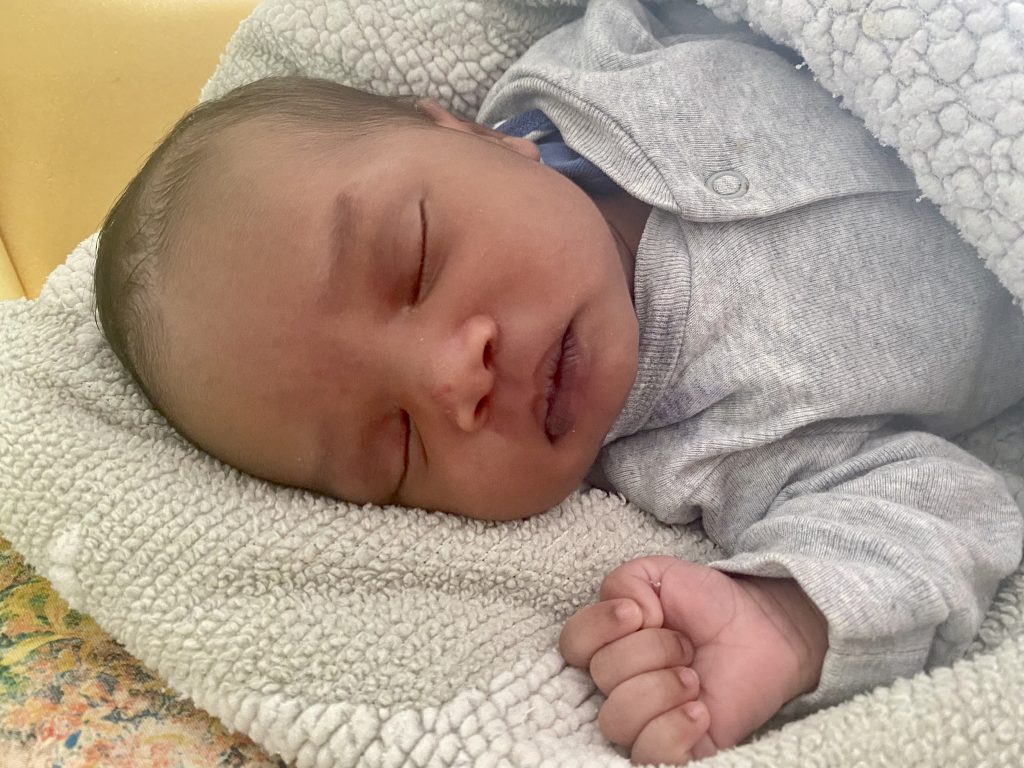
Baby Salepo arrived at Neema Village at two days old. When they arrived, Ngoije told the story of what happened to the mother. Ngoije correctly diagnosed that retained placenta had been the problem, told us how she would have resolved the issue had she been there, and said that she was sad because she knew the mother should not have died. We were saddened to know that this mom could have been saved if we had gotten there sooner with the training.
Meanwhile, the same day we learned that another TBA, Nalepo, from class one had been called about a mother that was in trouble after delivery and the attending TBA (who had not been in Save the Mothers) did not know what to do to help her. After talking on the phone about the problem, Nalepo knew the mother had a retained placenta and told the family to get her to the clinic and she would meet them there. When they arrived at the clinic, the doctor on duty saw that retained placenta was the issue but told the family that he did not know what to do to solve
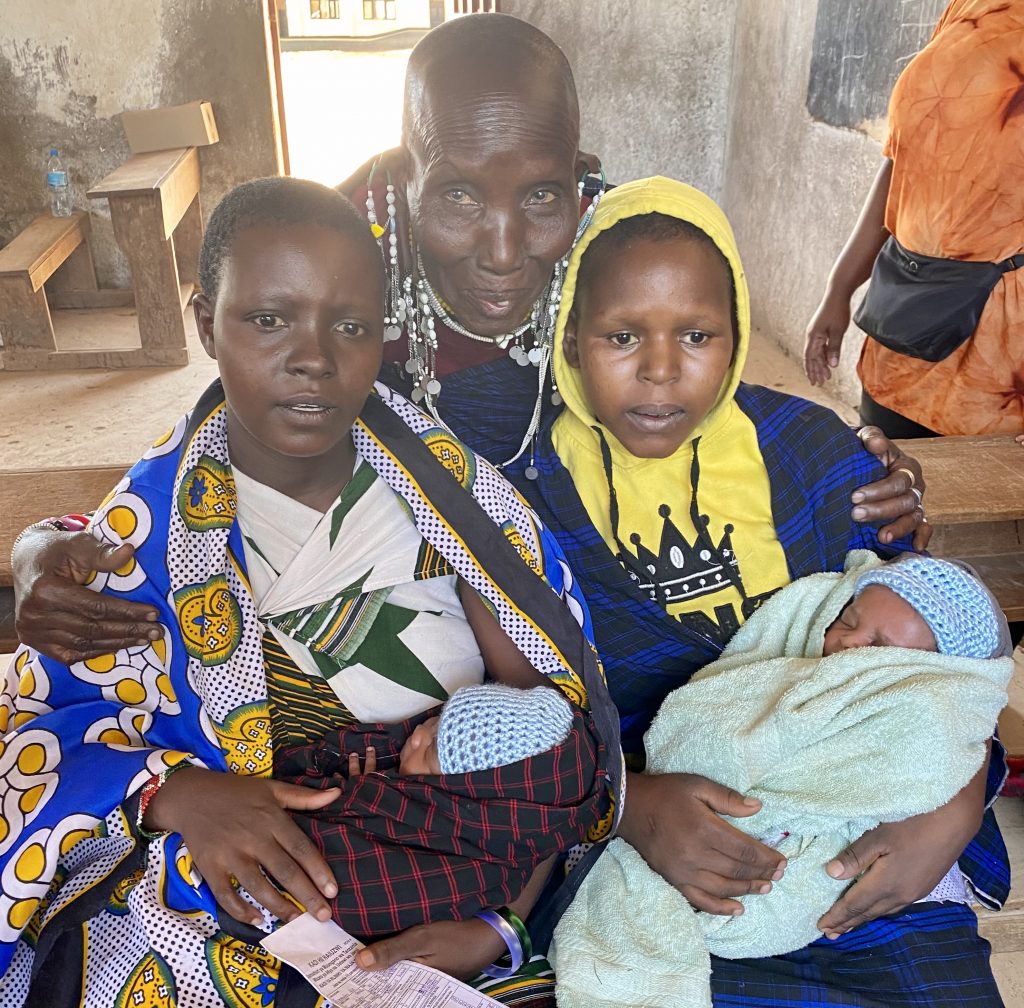
the problem. Nalepo explained to the doctor that the placenta needed to be manually evacuated.\
After she explained, the doctor called the nurses to glove her and our TBA performed the manual evacuation procedures she learned in class at Neema Village. A few hours later, the family, baby, and mother all left the clinic perfectly fine. They left one shocked but happy doctor and staff at the clinic.
Nalepo with two young mothers she helped deliver safely and their babies
A week long Save The Mothers session cost $5,000.
Donate to Support the Program
The Auditor and Bookkeeper have recommended that we cut our categories down to four main groups. Please designate one of these five funds for your donations.
- General Funds – Includes Sponsorships and all funds necessary for operations.
- Outreach Funds – Includes MAP, STM, food, medical, water well drilling, education and other outreach projects.
- Property Development – Includes buildings (please name the building) roads, land purchases.
- Volunteer Expenses – Paid exclusively by volunteers for their living expenses at Neema.
- Legasy Fund – to insure Neema Village continues into the future.
The Board reserves the right to allocate funds to support the work done at Neema Village.
Neema Village does not sell donor lists. Donor information is used solely for Neema financial records and to give receipts.
